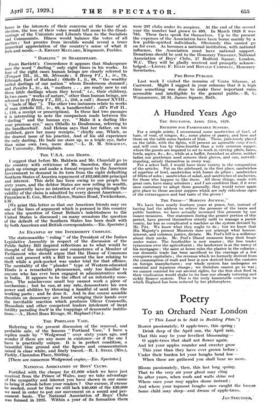" DARLING " IN SHAKESPEARE.
From Bartlett's Concordance it appears that Shakespeare uses the word " darling " only eight times in his, works. In four of the eight cases human beings are clearly referred to (Tempest III., iii., 98, Miranda 8 Henry VI., I., iv., 78, Edmund, Earl of Rutland ; Othello I., ii., 68, " the wealthy curled darlings of our nation " whom Desdemona shunned ; and Pericles I., iv., 44, " mothers . . . are ready now to eat those little darlings whom they loved," i.e., their children). In two cases " works of nature," other than human beings, are referred to (2 Henry VI. III., i., 216, a calf ; Sonnet XVIII. 3, " buds of May "). The other two instances relate to works of man (Othello III., iv., 66, a handkerchief ; All's Well II., i., 110; a receipt or prescription). In these last two passages it is interesting to note .the comparison made between the darling " and the human eye. "Make it a darling like your precious eye," says Othello to Desdemona, referring to the handkerchief. And Helena says that her father, on his deathbed, gave her many receipts. " chiefly one, Which, as the dearest issue of his practice, And of his old experience the only darling, He bade me store up, as a triple eye, Safer than mine own „two, more dear."—L. R. M. STRACHAN, The University, Birmingham.








































 Previous page
Previous page